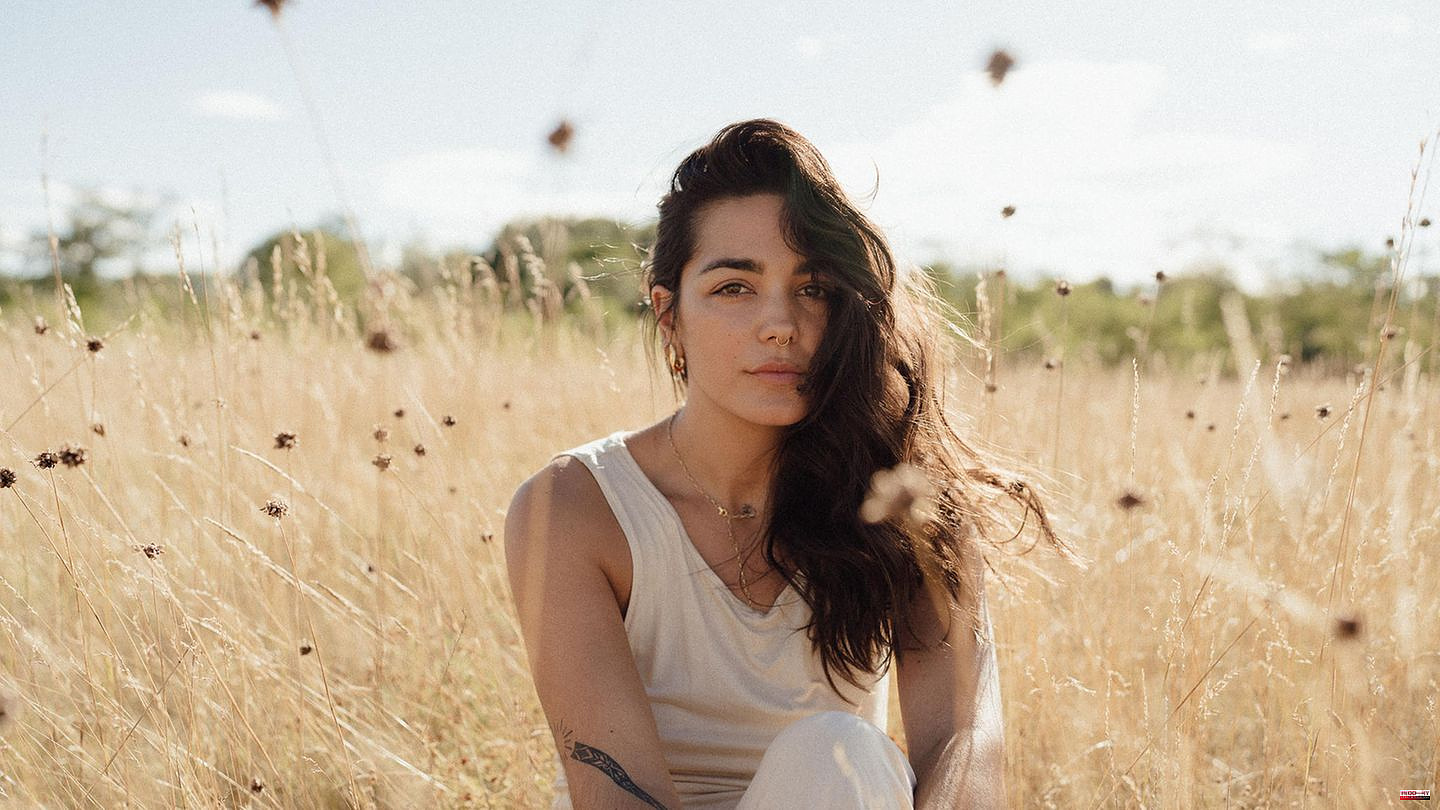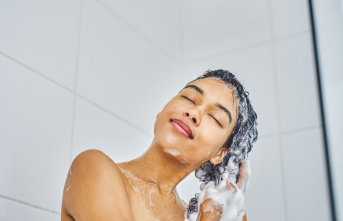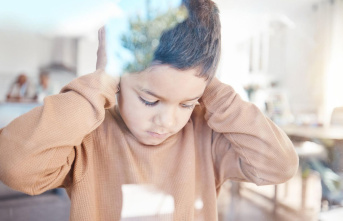On Instagram you show yourself with unshaven armpits and legs - you are committed to normalizing body hair in women. How did you get into it?
Rebecca Chelbea: It has to do with my personal history - as a child I wasn't even aware that I had more body hair than others. But I learned it quickly from the comments of the other kids. I have Persian roots, so maybe I have darker hair on my body and a few more. I was body shammed at the time. What they said shaped me – I started depilating my body when I was 13 years old.
It then became an obsession pretty quickly – it felt like I had to do it to avoid being perceived as weird or different. I wanted to be accepted. At some point I realized that I would like to accept my body the way it is. I was traveling in Latin America at the time and I decided to do a challenge: no depilation for four weeks. That quickly turned into six months. It helped me immensely to accept myself as I am.
And why is that so important to you?
I think it's so important because this hair is a part of me and I find it abnormal that I and other female readers learn to look in the mirror and find their body hair gross. Or not allowing yourself to go to the pool because you haven't shaved or depilated - why is that normal? As much as I wish it was banal, not shaving your legs, armpits or private parts as a woman is still an act of rebellion.
You have called on your followers to take part in a hair wax challenge several times. How was the feedback?
I called it the Haarmony Challenge - four weeks without depilation. The feedback from my followers was incredibly nice. Some found it difficult, others didn't. It was nice to see how many women took part. I keep getting feedback that people who read women can take care of themselves more through my educational content. And that's the best feedback for me - I would have wished for a role model like that earlier. I would have liked to see a woman or someone read as a woman in the media with hair on their backs or with hair on their legs.
You also often talk about self-love.
I find it particularly important to be there for yourself even in bad moments or bad days - to accept yourself even in such situations. Being your own best friend is a good guiding principle for nurturing a loving relationship with yourself.
How did you manage to treat yourself lovingly?
I think it was just a steady process. It was important for me to deal with my thoughts. At some point I realized that I have a choice whether to believe nasty thoughts or not. I have learned to immerse myself in my emotional world, not to suppress feelings and to stand up for my needs.
What are your tips for anyone who is still struggling to accept themselves?
First, it is important to develop an awareness that you have a body, but you are not just the body. It's great that we have this tool and we will only get this one in our lives. In our society we tend to focus so much on what our bodies look like that we forget that there is so much more to us than the body.
And how can I easily implement this?
On social media, only follow accounts that are inspirational and motivating. Follow accounts that present a similar body shape, seek different perspectives, and see how diverse the world is, and bring that more into your own life.
Empathizing with your own body, paying attention to what you see, hear, smell, taste or even go barefoot, helps to arrive in the moment and to create awareness of your own body.
When your body needs a break, give yourself rest. Have you always had a feeling for what is good for you?
I've always had a strong connection to my intuition. I've always felt good about my body, but that doesn't mean I've always listened to it. It's always helpful for me to take a moment, even on hectic days, to empathize and ask myself how I'm doing and what I need right now. And also to communicate the needs. For example, am I menstruating and am I in severe pain? Do I pop a pill or communicate that I actually have to go to bed now?
Studies show that social media makes people unhappier because they compare themselves and because they think their life might be boring or not that perfect. how do you look at it
We just spend a lot of time on social media and when you do that, you should just reflect on which accounts you follow. There are many accounts that really inspire, that call to feel emotions and stand for diversity. And I find that very helpful. I don't follow accounts that put pressure on me. I have control over what is shown to me in my feed.
In our society, not removing your hair or not wearing a bra as a woman can result in you being looked at funny, being sexualized or just being thrown stupid jokes at you. How do you deal with it?
I don't want to be deprived of the liberty of not wearing a bra or not shaving just because the outside world tells me it's wrong. But basically it's just annoying. It's annoying to be sexualized as a woman just because I have nipples and that's just not the case with a male read person. We need to get to the root of the problem - the solution cannot be that all women have to wear a bra. We have to ask why people claim the right to judge, objectify, or sexualize other bodies. That has to be started.
And you shared your last relationship quite openly on Instagram and then you also decided to make your coming out public. Why is it important to you that these areas of your life are also part of your profile and are therefore also in the public domain?
Unfortunately, it is still the case that people from the LGBTQIA community are discriminated against and that it is unfortunately not normal. People are still being murdered today because of their sexuality. You can't show it publicly all over the world. That's exactly why I personally think it's important to communicate it to the outside world, because I feel safe and have the capacity to do so. It ensures more acceptance and I can maybe motivate people to be more true to themselves.
You came out at 30. In our society, where heterosexuality is considered normal, do you find it difficult to find your own sexuality?
I can sing a song about that because I grew up in a totally heteronormative bubble. And in that environment, somehow figuring out that my sexuality might be fluid is difficult. I was born into a heteronormative world and you just assume straight out of being heterosexual. Anyone who isn't needs an outing. That's why it took a long time for me and I only came out at the age of 30. I've found women attractive before, but I've never given myself permission to say, okay, I consider myself part of the queer community. I first had to learn that I can count myself in the queer community.
Do you think we need more role models?
Yes absolutely. Representation is everything. It is so important that various role models are shown everywhere on TV, in magazines, on social media. Whether it's people with more weight, queer people, people with a migration background, people of color - we need a lot more representation of these groups. I'm already seeing some progress in the media regarding the queer community. There are now a few series that simply show queer people and their relationships without just showing their problems.












